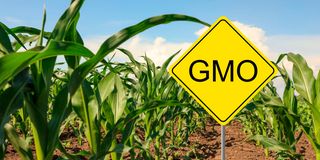Farmers urged to use genetically modified seeds as climate change bites

Genetically modified maize.
A multinational biotech company has called on stakeholders to help farmers use genetically modified seeds to mitigate and adapt to climate change in the future.
This follows the lifting of the ban on the planting of GM products, a move that Bayer says is the best solution for Kenya and the world to increase food security and adapt to climate change.
Bayer explains that there are various hybrid products such as BT cotton and soya beans. The biggest gain for GM-enabled products is maize.
"With the United Nations predicting that the world's population will reach 9.8 billion by 2050, the world has no choice but to adopt more sustainable and weather resilient farming practices for a food secure future," said Anthony Maina - Bayer's Head of Corporate Communications for Africa.
"We remain steadfast in providing solutions and options to farmers, we have established centres of excellence in Kajiado, Mwea and Siaya that provide hands-on learning on the use of hybrid seeds versus conventional seeds, crop protection and new farming technologies," he added.
In October last year, a Nairobi court dismissed a petition by the Law Society of Kenya (LSK) seeking to overturn a Cabinet decision to lift the ban on genetically modified organisms (GMOs).
In the petition, the LSK had alleged that the cultivation, import and export of GMO maize was taking place without an Environmental Impact Assessment (EIA) licence.
The Environment and Land Court said no evidence had been produced to show that the Kenya Agricultural and Livestock Research Organisation was already engaged in the cultivation of food, feed and processing, import, export and transit of MON 810 event in maize varieties in Kenya without an EIA licence.
Maina was speaking during a Bayer campaign to improve lives through science.
With ever-changing weather patterns, smallholder farmers (with farms of 50 hectares and less) are the most affected in the value chain. Bayer is working with smallholders to help them mitigate and adapt to changing weather patterns through technology (digital farming) and precision farming for commercial farmers. It also offers a solution to detect weather patterns and inform farmers about the right seeds to plant.





